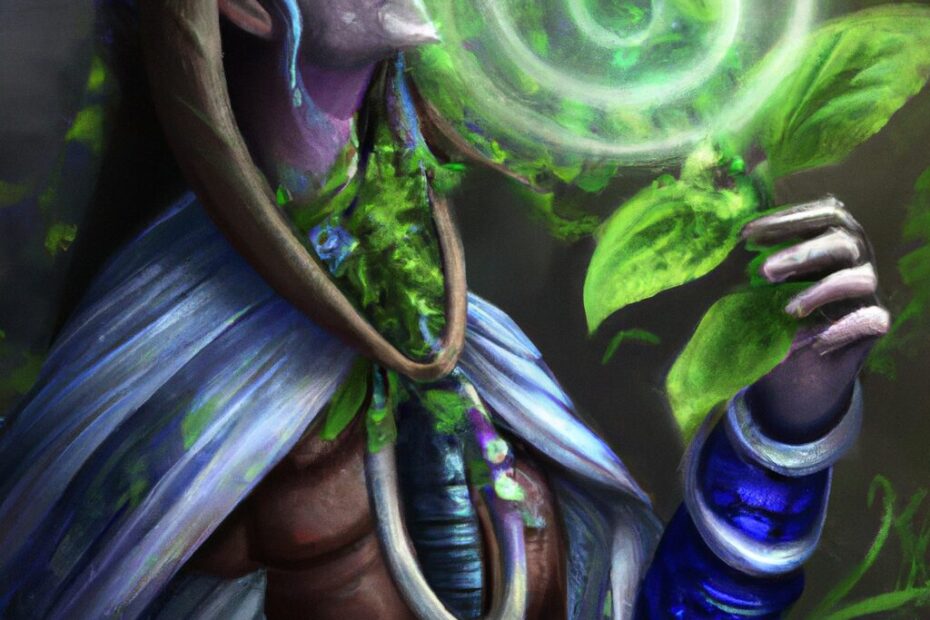Salvia, a potent psychoactive plant, has sparked much debate and controversy over its legal status in various states across the United States. In this comprehensive article, we will delve into the legality of Salvia in Wisconsin and explore its legal status in other states. We will examine the reasons behind the ban of Salvia in certain regions, potential risks associated with its use, different forms and methods of consumption, as well as the alternatives and substitutes available.
Join us as we uncover the complexities surrounding Salvia, its usage, and the legal landscape governing its possession and distribution.
What is Salvia?
Salvia, also known as salvia divinorum, is an herbal drug that holds psychoactive properties, causing hallucinogenic effects when consumed.
Originally used by the Mazatec people in Mexico during spiritual rituals, Salvia has been integrated into traditional shamanic practices for centuries. Its psychoactive component, salvinorin A, is known for inducing vivid, dream-like experiences, altered perceptions, and a distorted sense of time. When ingested, it can lead to intense introspection and visual hallucinations, often prompting feelings of connectivity with nature and the universe. These effects can vary widely among individuals, from euphoria and emotional insight to anxiety and confusion, making its use a subject of scrutiny and caution within the medical and legal communities.
Is Salvia Legal in Wisconsin?
The legal status of Salvia in Wisconsin is subject to specific laws and regulations that determine its legality within the state.
Salvia is currently classified as a controlled substance in Wisconsin, under the Wisconsin Controlled Substances Act. The legislation outlines the restrictions and penalties associated with the possession, sale, and distribution of Salvia. Enforcement measures are in place to monitor and regulate compliance with these laws, ensuring that the public is protected from potential risks associated with the use of Salvia.
The state of Wisconsin takes a proactive approach in managing the legal framework related to Salvia to maintain public safety and uphold the rule of law.
What is the Legal Status of Salvia in Other States?
The legal status of Salvia varies across different states, with some states regulating its usage, while others have prohibited its possession and sale.
In some states where Salvia is regulated, there are specific legislation and regulatory measures in place that govern its possession, cultivation, and distribution. These regulations may include age restrictions, requirements for labeling and packaging, and guidelines for retail sales.
On the other hand, in states where Salvia is prohibited, there are strict laws in place to prevent its use and distribution due to its psychoactive properties. Understanding the legal framework surrounding Salvia is essential for individuals, businesses, and law enforcement agencies to ensure compliance with the applicable regulations and to prevent potential legal issues.
Why is Salvia Banned in Some States?
The prohibition of Salvia in certain states is often attributed to concerns raised by authorities regarding its psychoactive effects, jurisdictional compliance, and public health impact.
These concerns have prompted regulatory bodies to assess the potential risks associated with the use of Salvia. Legal jurisdictions have grappled with the classification and control of substances with psychoactive properties, leading to debates on efficient regulation.
Public health considerations regarding the physical and mental well-being of individuals have also played a significant role in the ban of Salvia in specific states, with concerns over its potential for addiction and adverse effects on cognitive function.
What are the Potential Risks of Salvia Use?
The potential risks associated with Salvia use encompass legal implications related to possession, sale, cultivation, and enforcement actions by regulatory authorities.
These legal implications stem from the fact that Salvia is classified as a controlled substance in several jurisdictions. Possessing, selling, or cultivating Salvia can lead to felony charges, resulting in severe penalties, including imprisonment and hefty fines. Law enforcement agencies actively monitor and enforce strict regulations concerning the use of Salvia.
The sale and cultivation of Salvia without proper authorization can lead to civil and criminal liabilities, making it essential for individuals to exercise caution when dealing with this substance.
Can Salvia Cause Hallucinations?
Salvia has been reported to cause intense hallucinations and perceptual distortions, leading to significant alterations in consciousness upon consumption.
Users often describe experiencing vivid visual and auditory hallucinations, time dilation, and a profound sense of detachment from reality. These effects can lead to a heightened sense of introspection and introspective thoughts, making it a popular choice for those seeking altered states of consciousness.
The plant’s psychoactive properties have made it a subject of interest for researchers studying altered states of consciousness and its potential therapeutic applications in treating certain mental health conditions.
Can Salvia Lead to Addiction?
There is limited evidence to suggest that Salvia leads to addiction, yet its psychoactive effects and legal implications may subject individuals to criminal punishment if misused.
While addiction to Salvia may not be as widely reported as with other substances, its psychoactive properties can still pose a significant risk for some individuals. The legal ramifications of Salvia misuse should not be overlooked, as laws and punitive measures against its unauthorized use and distribution are in place in many jurisdictions.
Understanding the potential for addiction and the criminal implications of Salvia use is crucial in promoting responsible and informed decision-making.
Are There Any Long-Term Effects of Salvia Use?
Long-term effects of Salvia use remain a topic of concern, warranting public health awareness and educational initiatives to address potential risks associated with prolonged usage.
These efforts are essential to ensure that individuals understand the potential impact of prolonged Salvia use on cognitive function, mental health, and overall well-being. Awareness campaigns can play a crucial role in informing the public about the potential risks of addiction and dependency associated with extended use of this substance.
By integrating information on the long-term effects of Salvia use into public health programs and educational materials, communities can work towards reducing the prevalence of these issues and promoting healthier lifestyle choices.
How is Salvia Used?
Salvia is typically used by consuming its leaves through various methods, including smoking, chewing, or brewing as a tea.
When smoked, the leaves of Salvia, often dried and rolled into a joint, are burned and the smoke inhaled for a quick and intense effect. Chewing the fresh leaves is another common method, as it allows for a gradual release of its active compounds. Brewing the leaves to make a tea is favored by some for a milder and longer-lasting experience. Each method offers distinct usage patterns and effects, appealing to a diverse range of users.
What Are the Different Forms of Salvia?
Salvia is available in different forms, including dried leaves and concentrated extracts, each varying in potency and psychoactive effects.
The dried leaves of Salvia divinorum, for example, are often smoked or chewed to produce mild to moderate psychoactive effects, leading to altered perception and a sense of detachment from reality. On the other hand, concentrated extracts, such as tinctures or oils, are known for their heightened potency, often resulting in more intense and profound psychedelic experiences. Understanding the differences between these forms is crucial for individuals seeking to explore the unique psychoactive attributes of Salvia.
What Are the Methods of Salvia Consumption?
Salvia consumption methods encompass:
- Smoking the leaves
- Chewing them
- Preparing the plant as a brewed tea
Each method delivers distinct psychoactive experiences.
When smoking salvia, the effects are usually felt within minutes, peaking quickly and then subsiding rapidly. The intensity of the experience can be quite powerful, often leading to vivid visual hallucinations and altered perception of reality.
Chewing the leaves prolongs the onset of effects, providing a more gradual and long-lasting experience. On the other hand, brewing salvia as a tea turns down the intensity, resulting in a milder, extended journey into the plant’s psychoactive properties. Each method offers a unique way to explore the diverse dimensions of salvia’s effects.
What Are the Alternatives to Salvia?
Individuals seeking alternatives to Salvia may explore legal substitutes or natural herbal options that offer similar psychoactive effects without legal implications.
These alternatives include herbs such as Kratom, Blue Lotus, and Kava, which are known for inducing relaxation, euphoria, and altered states of consciousness. Kratom, for instance, has gained popularity for its mood-enhancing and pain-relieving properties. Blue Lotus, on the other hand, is valued for its calming and aphrodisiac effects, while Kava is known for its sedative and anxiolytic properties. These natural options can provide an experience akin to Salvia, avoiding legal ramifications associated with controlled substances.
Are There Any Legal Substitutes for Salvia?
Legal substitutes for Salvia are subject to specific regulations and legality, offering alternative psychoactive experiences within the boundaries of the law.
These legal alternatives, such as Kratom, Kava, and Blue Lotus, are gaining attention for their potential to provide similar effects to Salvia while remaining within legal constraints.
Kratom, for instance, is known for its stimulating and analgesic properties, and has been a subject of debate regarding its legal status. Similarly, Kava, a traditional Polynesian drink, has gained popularity as a relaxing and euphoric alternative. Blue Lotus, featuring mild sedative and euphoric effects, is also regarded as a legal substitute that offers a unique psychoactive encounter.
What Are Some Natural Alternatives to Salvia?
Natural alternatives to Salvia include various herbal options that offer psychoactive effects, providing individuals with alternative choices within the realm of natural remedies.
These herbal alternatives, such as kratom, kava, and blue lotus, have been used for centuries by different cultures for their psychoactive properties.
Kratom, for instance, is known for its stimulating and sedative effects, while kava is revered for its calming and anxiety-reducing qualities. Blue lotus, on the other hand, is popular for its mild euphoric and relaxing sensations.
These natural alternatives present an enticing array of options for those seeking a more holistic approach to altering consciousness.
Frequently Asked Questions
Is Salvia legal in Wisconsin?
No, Salvia is not legal in Wisconsin. It is classified as a Schedule I controlled substance, making it illegal to possess, distribute, or use in any form.
What is Salvia?
Salvia, also known as Salvia divinorum, is a plant native to Mexico that contains psychoactive compounds. It is often used for its hallucinogenic effects.
Why is Salvia illegal in Wisconsin?
Salvia is illegal in Wisconsin because it is considered a dangerous drug with high potential for abuse and no recognized medical use. It is also difficult to regulate and control due to its availability and ease of use.
Can I be arrested for possessing Salvia in Wisconsin?
Yes, possession of Salvia in Wisconsin is a criminal offense and can result in arrest, fines, and potential jail time. It is important to know and follow the state’s laws regarding controlled substances.
Are there any exceptions to Salvia’s legality in Wisconsin?
No, there are no exceptions to the state’s laws regarding Salvia. Even with a prescription or medical recommendation, possession or use of Salvia is still illegal in Wisconsin.
What are the penalties for possessing Salvia in Wisconsin?
The penalties for possessing Salvia in Wisconsin can vary depending on the amount and circumstances of the offense. Possession of even a small amount can result in felony charges and up to 3.5 years in prison. Repeat offenses or possession with intent to distribute can lead to even harsher penalties.
John Marston, a seasoned writer since 2009, has penned hundreds of articles on Salvia Divinorum across the web. As a full-time writer at a prominent online salvia retailer, he continues to contribute valuable insights, combining expertise and passion to unravel the diverse facets of Salvia Divinorum. Beyond his writing, John serves as a budtender in the cannabis industry.




